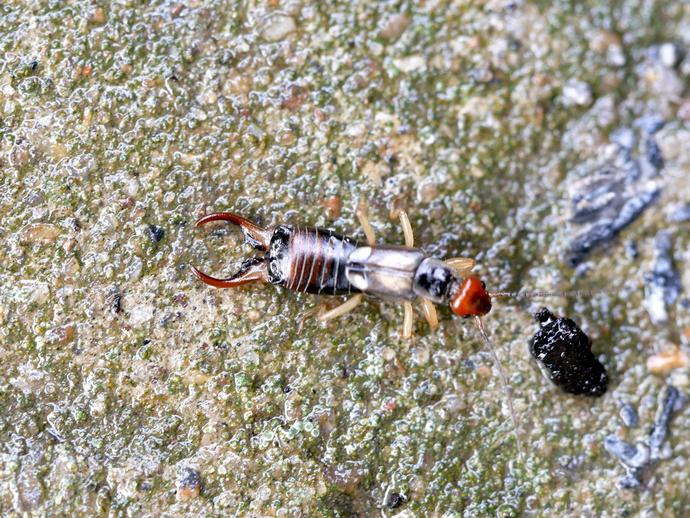May 25, 2020
Who doesn't love earwigs?
... all right, so very few people love earwigs, but they're victims of bad PR. For example, earwigs have no special interest in crawling inside your ear, and contrary to many old wives' tales, they definitely won't lay eggs in there. They're actually called "earwigs" because when their small wings are unfolded, they sort of resemble a human ear!
The most prominent feature of the earwig is the pincers extending from its abdomen. These pincers are an easy way to tell the difference between male and female earwigs: males have prominent, curved pincers and females have straight pincers. While the males are capable of giving you a pinch with their pincers, they're not likely to do so unless you handle one roughly. Even if one does pinch, it's very unlikely to break the skin.
The earwig in the photograph is a male European earwig (Forficula auricularia). These insects are native to Europe and western Asia and were introduced to North America in the early 1900s, and they have since become a common invasive species. While they're not dangerous, they are agricultural pests and a large population can cause significant crop damage. However, if your crops have a large population of certain species of aphids, earwigs can turn from a pest into a helper since they prefer eating aphids over crops. Earwigs, like so many critters out there, are simply misunderstood.
Thank you to VMNH Associate Curator of Invertebrate Zoology Dr. Kal Ivanov for confirming the ID on this one! #BenInNature
About this post: Social distancing can be difficult, but the next few weeks present a great opportunity to become reacquainted with nature. While he is working from home, Administrator of Science Ben Williams is venturing outdoors each day to record a snapshot of the unique sights that can be found in the natural world.
This post brought to you by VMNH Corporate Supporter The Lester Group.
NATURE PHOTO IDENTIFICATIONS
If you discover something in nature that you would like help identifying, be sure to message us right here on Facebook with a picture (please include location and date of picture) and we'll have our experts help you identify it!

 Hours & Admissions
Hours & Admissions Directions
Directions

